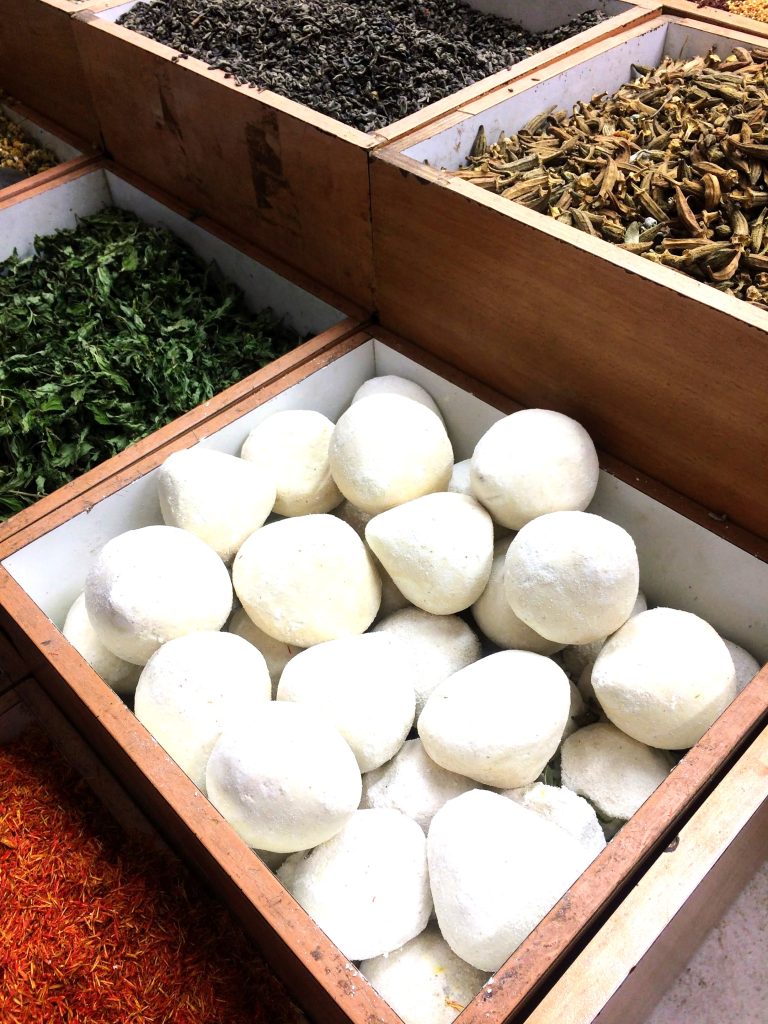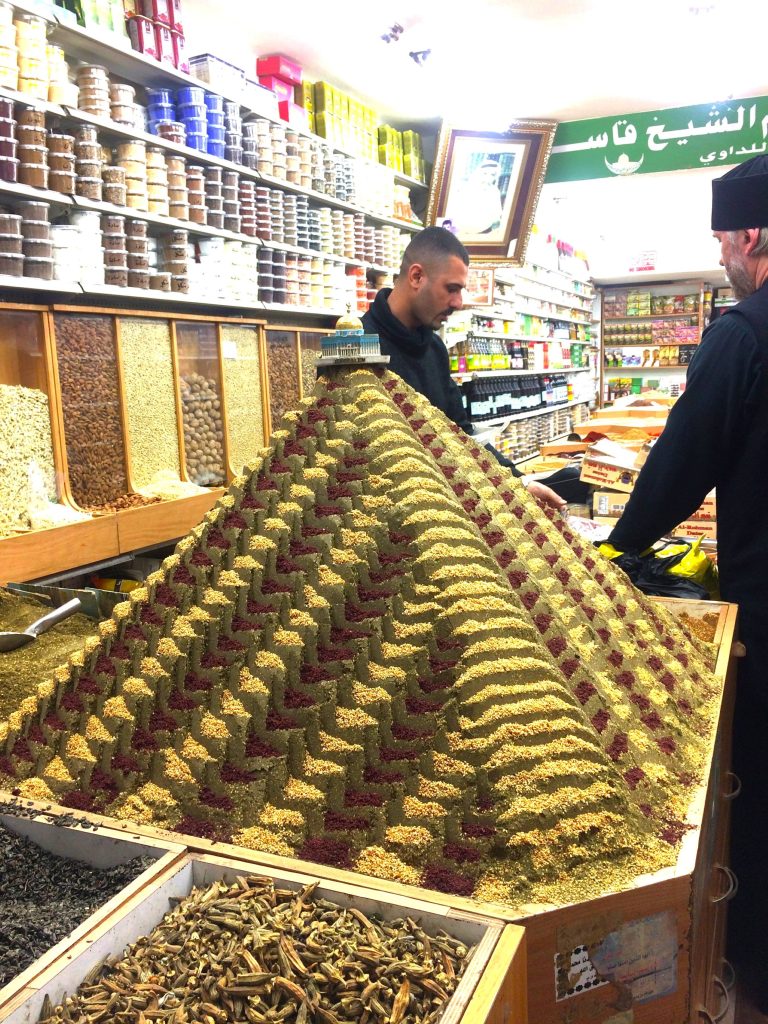Israeli Cuisine
Israeli cuisine can be described simply as Israeli Jewish fusion cuisine. With immigrants from six continents and over one-hundred different countries it is understandable how the cuisine incorporates foods from all over the world, from a variety of cultures.


Middle Eatern and Mediterranean influences are particularly strong in Israeli cuisine. With a strong emphasis on fresh fruits and vegetables, dairy products, falafel, hummus, shakshouka and couscous. In addition, distinctive traditional dishes prepared at holiday times hailing from all over the world are also common.
World trends have also seeped into Israeli cuisine with the perfect example being sushi. Tel aviv has more sushi restaurants per capita than any city on Earth! Chefs arriving from abroad have also brought elements of other international cuisine to Israel.
Although Israel does not have a universally-recognized national dish. It is unquestionably regarded by many to be falafel; deep-fried balls of seasoned, ground chickpeas that are sold by street vendors throughout the country.
Try hummus and vegetables
Hummus is to Israel as Peanut Butter is to America. Hummus is originally a Levantine Arab food dip or spread made from cooked, mashed chickpeas, blended with tahini, olive oil, lemon juice, salt and garlic. There are even establishments throughout the country that are devoted to selling Hummus (called a Hummusia). And people will often buy freshly-prepared Hummus there or sit down to enjoy a meal based on the national favorite.
Fresh and cooked vegetable salads are commonly enjoyed before meals, drawing inspiration, once again, from all four corners of the globe.
Couscous is a popular pasta dish in Israel. Originating in North Africa it is traditionally prepared by passing semolina through a sieve several times and then cooking it over an aromatic broth in a special steamer pot. “Instant” couscous is commonly bought today, prepared in a matter of minutes at home.
Fish and meat
In the wake of advances in fish farming in Israel, fresh fish is readily available and is often enjoyed grilled or fried and dressed with freshly-squeezed lemon juice. Gefilte fish, of Ashkenazi origin and Chraime, or North African origin, are two popular fish dishes in Israel.
As far as poultry and meat are concerned, chicken is definitely the most widely eaten meat in Israel, followed by turkey. However, grilled and barbecued meat is common and widely-loved with outdoor barbecuing being a favorite pastime especially in the summer months.
Milk and cheese
Dairy products are an important staple in Israel with many fresh and high-quality dairy products available including cottage cheese, white cheeses, yellow cheeses and Mediterranean salt-brined cheeses.
Fruits and bakeries
Over forty types of fruit are grown in Israel and the country is actually one of the leading fresh citrus producers and exporters in the world. Fresh fruits are widely enjoyed in Israel and are served as a snack or dessert. Fresh-squeezed fruit juices are sold at street kiosks as well as bottled in supermarkets.
Baked goods are once again a meeting between east and west with bakeries throughout Israel often combining ingredients from different regions in the world, resulting in sweet and savory pastries, cakes, kugels, burekas and cookies that simply prove to be irresistible.
Breads are available in an assortment of styles and tastes in both European and Mediterranean tradition. The Challah bread that is prepared for Shabbat is typically egg-enriched, sweet and braided. It can be purchased fresh on Thursdays and Fridays in preparation for Shabbat. The double-layered pocketed Pita bread is a favorite in Israel. Hailing from the Middle East it is eaten in a variety of ways- stuffed with falafel and salads filled with schnitzel and French fries, spread with Hummus or chocolate spread.
Sweets and snacks
Israelis are known for their sweet-tooth and their confections, sweets and snack foods reflect this well. A popular dairy pudding called Milky. It comes in a variety of sweet flavors and is topped with whipped cream. Baklava is a nut-filled Turkish phyllo-pastry sweetened with syrup. Halva is another Turkish sweet and is made from tehina and sugar and is immensely popular. Krembo is a chocolate-covered marshmallow treat that is consumed in huge amounts- but is only available in the winter. On the saltier side of things, sunflower seeds are eaten just about everywhere, commonly unshelled and cracked open with the teeth. And of course, Bamba, a soft, -peanut-flavored snack food that was developed in Israel is a favorite of children and well, just about everybody.
Coffe and tea
The coffee drinking culture is strong in Israel. Appearing in instant, iced, latte, espresso and Turkish styles in the countless cafes around the country. Tea is also enjoyed in Russian-style with sugar. In Middle-Eastern style with mint or even English-style with milk also very popular. Sahlab is a drinkable pudding that is enjoyed primarily in the winter. It made with cornstarch and topped with cinnamon and chopped pistachios. Shoko B’Sakit (“Chocolate in a Bag”) is another national favorite- chocolate milk. That comes in plastic bags that can be grasped and squeezed with one hand and is enjoyed by children and grown-adults alike.
Wine is drunk in moderation in Israel, enjoyed commonly at meals and social occasions. Israel’s wineries have gained international recognition, even winning international awards. Small boutique wineries and large companies produce together a total of over ten million bottles a year and export them worldwide.
Those who visit Israel during festivals are able to enjoy specialties that appear only once-a-year in honor of the festival.
Honey cakes and sweet, round, braided Challah breads for Rosh Hashanah, the Jewish New Year
Deep-fried potato pancakes and deep-fried jelly-doughnuts for Hanukkah
Dried fruits in abundance in honor of Tu B’Shvat, the New Year for Trees
Three-cornered pastries called Oznei Haman for Purim
Leaven and yeast alternatives on the festival of Passover
Mofletta eaten at the Mimouna celebration after Passover and dairy dishes galore
Especially cheese-cakes in honor of Shavuot.
